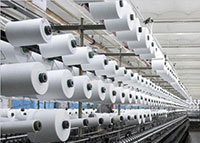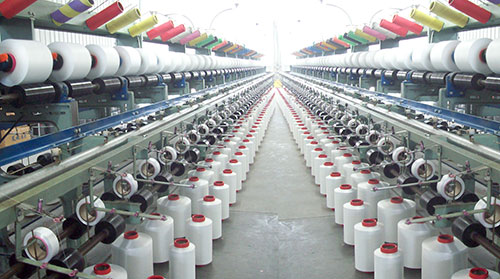"While NCTO strongly supports the free trade structure established under NAFTA, it also agrees with President Trump’s desire to improve the terms of the original agreement. It specifically advocates certain improvements in NAFTA renewal negotiation. Some of these include: maintaining yarn forward as the fundamental rule-of-origin for the textile sector; eliminating tariff preference levels on apparel and non-apparel products, and fabrics and yarns, using NAFTA-Origin components beyond the essential character of fabric, etc."
 While NCTO strongly supports the free trade structure established under NAFTA, it also agrees with President Trump’s desire to improve the terms of the original agreement. It specifically advocates certain improvements in NAFTA renewal negotiation. Some of these include: maintaining yarn forward as the fundamental rule-of-origin for the textile sector; eliminating tariff preference levels on apparel and non-apparel products, and fabrics and yarns, using NAFTA-Origin components beyond the essential character of fabric, etc.
While NCTO strongly supports the free trade structure established under NAFTA, it also agrees with President Trump’s desire to improve the terms of the original agreement. It specifically advocates certain improvements in NAFTA renewal negotiation. Some of these include: maintaining yarn forward as the fundamental rule-of-origin for the textile sector; eliminating tariff preference levels on apparel and non-apparel products, and fabrics and yarns, using NAFTA-Origin components beyond the essential character of fabric, etc.
Majority of these objectives were accomplished in the agreement reached between the parties late last year under the United States-Mexico-Canada Agreement (USMCA). Especially, the basic yarn forward rule was preserved as the origin requirement for duty-free treatment. In addition, the USMCA represents a demonstrative improvement for US manufacturers of component parts such as thread, pocketing, narrow elastics, and coated fabrics. These items will have stronger origin requirements under the new agreement that will certainly boost sales to North American customers. The USMCA agreement will make it impossible for TSA prime contractors to replace US textile inputs with competitive materials made in Mexico.
the United States-Mexico-Canada Agreement (USMCA). Especially, the basic yarn forward rule was preserved as the origin requirement for duty-free treatment. In addition, the USMCA represents a demonstrative improvement for US manufacturers of component parts such as thread, pocketing, narrow elastics, and coated fabrics. These items will have stronger origin requirements under the new agreement that will certainly boost sales to North American customers. The USMCA agreement will make it impossible for TSA prime contractors to replace US textile inputs with competitive materials made in Mexico.
New free trade agreements, but not with non-market economies
NCTO is already collaborating with the US government to negotiate new free trade agreements with the European Union, the United Kingdom; and Japan. The organisation believes the government should insist on establishing a strong yarn forward rule of origin, extending duty phase outs for products deemed to be sensitive and inclusion of effective and separate customs textile enforcement language.
NCTO also ensures that textiles is designated a Priority Trade Issue by Congress as textile and apparel shipments comprise more than 40 per cent of all duties collected by Customs and Border Protection (CBP). In 2019, it will reengage itself in the Miscellaneous Tariff Bill process. Further, it will oppose the inclusion of finished products, noting that they distort the intended premise of providing duty relief on inputs that undergo further processing by US manufacturers.”
NCTO is also monitoring proposed initiatives designed to undercut the US tariff structure proposals such as duty relief under the Generalised System of Preferences for apparel; expanding the use of Section 321 De Minimis duty breaks for importers; and eliminating US duties on high-performance outerwear.
Improving infrastructure for textile products
Besides boosting productivity and facilitating commerce, NCTO is also focusing on improving the infrastructure for textile products such as workwear, geosynthetics, and filtration systems. The organisation is urging for support its Defence Department-funded programme - the Advanced Functional Fabrics of America (AFFOA). This programme aims to make the development and commercialization of the high-performance textiles easier.
Increased automation and recruiting new talents
NCTO also advises the US government to improve the automation for garment assembly. Another of its priority is to ensure uninterrupted access to reasonably priced energy. The organisation also supports the construction of expanded oil and gas pipeline capacity to keep energy prices low.
Finally, NCTO recommends making recruitment of new talent a top priority. It also advises companies to forge links with local and state leaders, and educators to ensure that the government policies nurture an adequate labor pool to succeed in a competitive global economy.












